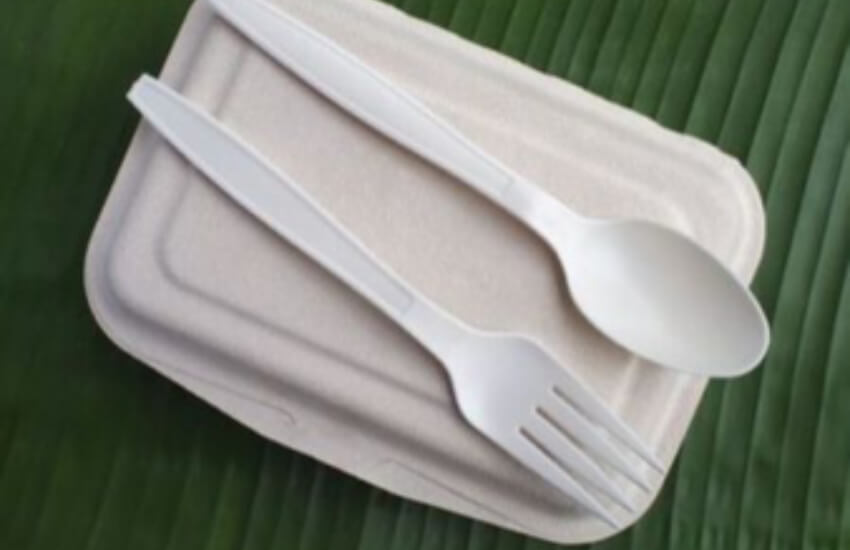Compostable plastic packaging has been criticised by a committee of MPs
The use of ‘industrially’ compostable packaging should not be promoted in the UK because the waste management infrastructure to deal with it is ‘not fit for purpose’, a committee of MPs has warned.
Much of the compostable packaging produced for the UK market only degrades in industrial composting facilities in specific industrial conditions, rather than in home composting – but not all is sent to these facilities. Industrial composting conditions require “elevated temperatures (55-60°) combined with a high relative humidity and the presence of oxygen”.
In its latest report on plastic food and drink packaging, UK’s Environment, Food and Rural Affairs Committee stated: “Although industrially compostable plastic packaging is appealing as an alternative to conventional plastics, the general waste management infrastructure to manage it is not yet fit for purpose.
“In addition, we are concerned that consumers are confused about how to dispose of compostable packaging, particularly if there is no dedicated compostable waste bin available. This could result in contamination of dry recycling as well as littering. We therefore don’t support a general increase in the use of industrially compostable packaging at this stage.”
However, it went on to state that industrially compostable packaging could play a role in closed loop environments, such as sporting events and workplace with catering facilities, where there is a dedicated disposal and collection service.
The news comes as the use of alternatives to fossil fuel-based plastic are being adopted by many food and drink companies, cafes, takeaway coffee venues, cafes and retailers.
Overall, experts that gave evidence to EFRA echoed the committee’s concerns over industrially compostable packaging.
‘Problem to marine life’
Sarah Greenwood, packaging technology expert at the University of Sheffield, said: “There is a perception with compostable packaging that it turns into compost, but it does not. It turns into carbon dioxide, water or methane with a tiny amount of biomass left behind.”
Environmental NGOs told the committee that the rapid introduction of such alternatives could actually increase plastic pollution.
Juliet Phillips, ocean campaigner of the Environmental Investigation Agency, said: “If a biodegradable cup gets into the sea, it could pose just as much of a problem to marine life as a conventional plastic cup.”
Trade body the Environmental Services Association highlighted that “there are a number of barriers to ensuring compostables work effectively with the waste management system and actually offer an environmental benefit”. The organisation said that industrially compostable packaging should be “sent to an In-Vessel Composting facility (IVC)”.
However, the Government’s “preferred option for treating food waste is anaerobic digestion (AD), meaning that the infrastructure portfolio will move increasingly in that direction and away from IVC”, the ESA added. The trade body went on to say that compostable packaging “is not currently processed by AD plants, and so operators will seek to extract it as they do with plastic contamination, and send it to energy from waste or landfill”.
However, not all the experts who gave evidence to EFRA’s report were critical of compostable packaging and gave praise to the material.
Vegware (@vegware), a compostable packaging manufacturer, stated that “where suitable composting is not possible, we advise people to put our products in general waste”. Vegware also stated that “the benefits of choosing lower carbon, renewable, recycled or reclaimed materials apply no matter what happens to them after use” and stated that studies showed that incineration of their products “produces more heat than newspaper, wood or food waste”, which is beneficial when producing energy from waste, and that “it produces no volatile gases and leaves little residue”. It added that “in landfill, studies show that compostable packaging and does not give off methane”.
The Bio-Based and Biodegradable Industries Association (BBIA) has stated that compostable materials are an “answer to specific packaging challenges and could substitute around 5-8% of current plastic packaging”.
To speak with Powersystems, please contact us on 01454 318000 or at enquiries@powersystemsuk.com

